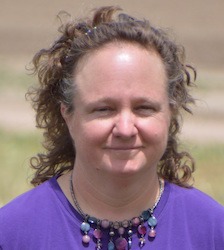Why Sharing Knowledge Benefits Your QA Career

QA testing professionals can proactively improve their careers by routinely and freely sharing knowledge. And making collaborative learning part of your culture helps the whole team.
Knowledge sharing is crucial for creating a collaborative, constructive working relationship between QA testing professionals. Many QA testers fear sharing their knowledge due to a lack of confidence or fear of losing status. After all, if you teach someone else what you know, could you lose your position within the team? Especially with the rise of diverse teams, it can be tricky to encourage teams to share their testing knowledge equally and equitably.
Once you take the plunge and share your knowledge, you’ll find the benefit to your career outweighs and outlasts any negative impact real or imagined. Working within a QA testing team is rife with competition from job assignments, hours and job advancements. Many testers hold back their knowledge because they believe it gives them a leg up on the competition for better testing assignments or management roles.
This guide illustrates how QA testing professionals can proactively improve their careers by routinely and freely sharing knowledge.
How Does Sharing Knowledge Benefit Your Testing Career?
Sharing knowledge benefits your testing career by:
- Expanding your experience.
- Enhancing your understanding at a deeper level.
- Fostering a supportive and educational environment within a team.
- Personally learning more by explaining than simply doing.
- Building trust and respect with peers.
- Developing training and presentation skills.
It’s much more difficult to explain a testing technique than to do it on your own. Not only do you have to understand the technique, but you have to back up and dig through your memory to explain it to someone new. Training others by sharing knowledge enhances the depth and breadth of your understanding of any topic.
For example, when you present a training on a new feature within an application, you understand how the feature works. However, by digging deeper into it in order to share your knowledge and explain it, you expand your understanding. Creating a presentation and documentation forces you to cover all aspects of the feature. You reach out to developers to further your understanding, so you’re prepared to answer questions effectively.
Essentially you increase your own knowledge through sharing with your testing team peers.
What Impact Does Sharing Knowledge Have on Your Professional Persona?
First, you develop a reputation or, as it’s commonly referred to these days, a brand. Your “brand” is represented by your ability and willingness to share knowledge with team members. Once you share knowledge, you become the source. The source is the person who provides answers.
People with answers become experts and leaders. Are you looking to move into management or become a technical testing expert? There’s no better way to get there than actively sharing knowledge whenever possible.
In fact, consider leading or organizing the effort. Start with lunch-and-learns where people meet in a conference or Zoom room to watch and listen to a presentation. Be prepared for presentations and create easy-to-see slides. Make sure you plan to send them out to the attendees for reference. If you don’t want to share all your slides, then create a brief that covers the details of the topic.
Do your best to make topics interesting and keep meetings on track. Have a problem with participation? Consider sending out a survey to find out what topics people are interested in. Another option, if it’s in the budget, is to provide snacks or lunch. Encourage others to present on the topic of their choice, or if you have two people on opposite sides of a discussion consider a debate. Mix it up and make it more interesting.
As managers, it’s critical to reward and recognize participants. Recognition and reward go a long way in developing leaders and keeping knowledge flowing.
What Are Effective Ways to Share Knowledge?
Effective ways to share knowledge include:
Establishing standard QA processes including metrics for measuring quality and personal performance.
You can’t accurately judge what you don’t measure. Metrics are useful as guides to reinforcing or changing behavior through knowledge sharing.Define testing techniques for the team to use and when.
Selecting several test techniques and defining when to use them helps guide team members to effective decisions.Determine the type of test design for both manual and automation.
By establishing expected standards, it’s easier to train team members to meet expectations.Promote and enforce diversity and inclusion within the team.
Diversity and inclusion refer to team members, locales and team positions. Diversity and inclusion also mean new and emerging testing techniques, tools and process change improvements.Organize regular knowledge-sharing sessions.
Encourage all team members to share knowledge regularly. If formal presentations are too much, offer a variety of communication and training options.Have team members share knowledge by performing peer reviews.
Let team members share knowledge person to person rather than in a group setting.Create challenges for testers to go out and learn a new testing skill or technique and then train the team.
Don’t give up if knowledge transfer starts slowly. It takes time, encouragement, support and a reward system. Many testers are afraid of public speaking, so change it up and have them write reference documentation and have peers provide review feedback. Be creative. Try not to do the same presentation type time after time. Consider creating a game to share knowledge. Try a Test-a-thon where testers come up with solutions to company or development team issues.
Don’t stagnate, keep it interesting. It’ll take some work to keep testers from retreating. Perhaps make it a performance review project or make it a team challenge. Be creative to grab team member’s interest and create a culture of learning and knowledge sharing.
Expanding Your Career Horizons with Knowledge Sharing
Knowledge not only builds a career, but it can also lead to additional opportunities or new challenges. Have a great topic to share or train users on? Consider presenting it to other testers outside your organization. There are many options for presenting knowledge. Modern testing includes presenting knowledge-sharing content in a variety of ways.
Content includes blogs, podcasts, webinars, books and even developing a training course. In today’s software testing world, testers can influence others around the globe with online content. Opportunities exist online, as well as within testing groups, testing conferences, workshops and seminars. Not only can you expand your knowledge sharing, but you can also learn from the larger software testing community.
For example, are you an automated test developer? Share that knowledge with your team and expand the test automation project. Include some of your challenging tasks or test scripts that you can’t get to work as you like. See what a group of like-minded testers can come up with. Put it out there and see the rewards you get back.

Amy Reichert
A QA test professional with 23+ years of QA testing experience within a variety of software development teams, Amy Reichert has extensive experience in QA process development & planning, team leadership/management, and QA project management. She has worked on multiple types of software development methodologies including waterfall, agile, scrum, kanban and customized combinations. Amy enjoys continuing to improve her software testing craft by researching and writing on a variety of related topics. In her spare time, she enjoys gardening, cat management and the outdoors.

